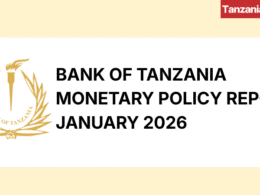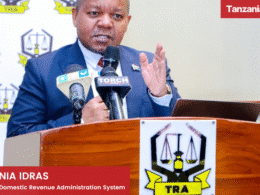In its last Monetary Policy Committee Meeting Statement of May 2023, the Bank of Tanzania (BOT) explained that the external sector of the economy continued to face spillover effects of the war in Ukraine and lagged impact of the COVID-19 pandemic.
This led to elevated commodity prices, disrupted supply chains, rising current account deficit and pressure on foreign exchange, as well as high cost of borrowing in international markets.
As a result, Tanzania’s foreign exchange reserves closed at USD 4.9 billion at the end of April 2023, down by USD 600 million or -10.9% from USD 5.5 billion at the end of April 2022.
The level of reserves is sufficient to cover 4.4 months of imports, which is within the
country benchmarks of at least 4 months; and
However, Tanzania’s foreign exchange reserves decrease in the past year raising concerns about the country’s financial stability.
Consequently, BOT issued new directives on foreign exchange operations on 31st May 2023 (effective from 1st June 2023), to foster macroeconomic stability and safeguard the stability of the country’s financial system.
In the directives, the central bank reminds all the dealers of foreign exchange to observe the requirements under the foreign exchange regime in the country at all-time which include but are not limited to the following:
(i) All Foreign exchange transactions exceeding USD 1,000,000.00 per transaction in the retail market shall at all times be traded within the interbank foreign exchange market prevailing quoted prices. All transactions of a single customer in a day shall be summed up for the purpose of determining this amount.
(ii) Trading of foreign exchange with international foreign currency brokers who are not licensed in the United Republic of Tanzania is strictly prohibited.
(iii) At all times, foreign exchange dealers are required to strictly observe the procedures for Know Your Customer (KYC) in their undertakings.
(iv) The limit for the foreign exchange Net Open Position (NOP) shall be ten per cent (10%) of Core Capital and has to be observed at all times.
(v) All Letters of Credit (LCs) for transit cargoes shall be funded by foreign exchange mobilized from respective destination countries.











